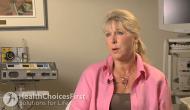Dr. Dean Elterman Bio
Dr. Dean Elterman, Urologist, Toronto completed his medical degree followed by residency in urologic surgery at the University of Toronto. Dr. Dean Elterman Urologist, Toronto became a fellow of the Royal College of Physicians and Surgeons of Canada in 2011. Dr. Elterman completed a two-year fellowship in Voiding Dysfunction, Neuro-Urology, Female Urology and Pelvic Reconstruction at Memorial Sloan-Kettering Cancer Center and New York Presbyterian Hospital/Weill Cornell Medical College in New York City.Dr. Dean Elterman Urologist, Toronto has worked in the areas of men’s health and survivorship at the Iris Cantor Men’s Health Center at New York Presbyterian Hospital/Weill Cornell Medical College and at the University of Toronto. He is the Medical Director of the Prostate Cancer Rehabilitation Clinic at Princess Margaret Hospital Cancer Centre. Dr. Dean Elterman Urologist, Toronto completed his Masters degree in Clinical Epidemiology and Health Services Research at Weill Cornell Graduate School of Medical Sciences. Dr. Elterman is a member of several professional societies including the Society of Urodynamics, Female Pelvic Medicine and Urogenital Reconstruction, the Society of Genitourinary Reconstructive Surgeons, the International Neuromodulation Society, and the International Society of Men’s Health. Websites: https://uuaurology.com https://urolift.ca Areas of Specialty and Research Interests Dr. Dean Elterman Urologist, Toronto clinical and research interests include male health, voiding dysfunction and reconstruction including BPH, incontinence (male sling/artificial urinary sphincter), sexual dysfunction (penile prosthetic surgery); female voiding dysfunction including overactive bladder (sacral neuromodulation) and urinary incontinence. Affiliated Hospital(s) Princess Margaret Cancer Centre (UHN), Toronto General Hospital (UHN), Toronto Western Hospital (UHN) Dr. Dean Elterman is an Associate Professor of Urology at the University of Toronto, sub-specializing in functional urology. His clinical and research interests include voiding dysfunction, particularly sacral neuromodulation, benign prostate enlargement and men’s health. He is the Medical Director of the Prostate Cancer Rehabilitation Clinic at Princess Margaret Cancer Centre and Functional Urology Fellowship Director at UHN. Dr. Elterman trained at the University of Toronto (MD, Urology Residency), Memorial Sloan-Kettering Cancer Center (Fellowship), and New York Presbyterian/Weill Cornell Medical Center (Fellowship, MSc Clinical Epidemiology). He is an internationally recognized expert in the areas of novel technologies for benign prostate enlargement (BPH) and sacral neuromodulation. He lectures and teaches globally and is passionate about improving the quality of life for patients with difficult to treat urologic conditions.
Video by Dr Deal Elterman :
Dr. Dean Elterman, Urological Surgeon talks about the different types of overactive bladder and typical symptoms often experienced.
Dr. Dean Elterman, Urologic Surgeon The causes and treatments of Erectile Dysfunction
Dr. Dean Elterman, MD, MSc, FRCSC Urological Surgeon talks about the risks for men getting erectile dysfunction as they age.
Urinary tract infections in men and women Dr. Dean Elterman, MD, MSc, FRCSC Urological Surgeon, talks about urinary tract infections (UTI's) in men and women.
BPH and symptom development Dr. Dean Elterman, MD, MSc, FRCSC Urological Surgeon,
Dr. Dean Elterman Urologist, Toronto Is in good standing with the College of Physicians and Surgeons of Canada, Dr. Dean Elterman Urologist, Toronto is in good standing with the Canadian Urological Society and the Canadian Medical Association
Keywords: Cancer: BPH, Cancer: Prostate Nutrition, Cancer: Breast Cancer, Cancer: Colon and Rectal Cancer Cancer: Lung Cancer, Cancer: Melanoma, Cancer: Ovarian Cancer, Cancer: Prostate Cancer
Dr. Dean Elterman Urologist, Toronto
Youtube: BPH treatment and surgical options Dr. Dean Elterman, MD, MSc, FRCSC Urological Surgeon
Linkedin Profile: Dr Dean Elterman
Twitter: Dr Dean Elterman
Division of Urology UT: Dr Dean Elterman
Practice Update: Dr Dean Elterman
Face Book ; Dr Dean Elterman
Surgery Toronto : Dr Dean Elterman
( Dr. Dean Elterman, Urologist, Toronto, ON) is in good standing with the College of Physicians and Surgeons.
If you are looking for local services or treatment froma local urologist in the office or hospital from a Urologist, contact a provider such as ( Dr. Dean Elterman ) to inquire if they are accepting patients or you need a referral. Phone number to book an appointment (416) 603-5800 ext. 5033 ( Dr. Dean Elterman ) Is in good standing with the College of Physicians and Surgeons ( Dr. Dean Elterman ) Is in good standing with the Canadian Urological Society ( Dr. Dean Elterman ) Is in good standing with the Canadian Medical Association
Keywords: Cancer: BPH, Cancer: Prostate Nutrition, Cancer: Breast Cancer, Cancer: Colon and Rectal Cancer Cancer: Lung Cancer, Cancer: Melanoma, Cancer: Ovarian Cancer, Cancer: Prostate Cancer
The speaker in the video may have no association with ( Dr. Dean Elterman, Urologist Toronto, ON ).
( Dr. Dean Elterman, Urologist Toronto, ON ), may talk about some of the conditions and some of the treatment options shown on the videos. Always talk with your Local Urologist about the information you learnt from the videos in regards to Male incontinence Contino® treatments and procedures the Local Urologist could perform and if they would be appropriate for you. Remember good information from your Local Urologist is the corner stone to understanding your condition or disease.
Health Talks:
Sexual preservation for BPH prostate surgery
Urology Practice isa great pleace to start to look into If you’re experiencing symptoms of male incontinence, a local urologist can help. A local urologist can ask about your symptoms and recommend further testing or male incontinence treatment. Urethral inserts like Contino® are temporarily inserted into the urethra (the tube which carries urine to the outside of the body) to prevent or reduce bladder leakage. Damage to the kidneys can lead to swelling in the hands and ankles, high blood pressure, and other symptoms.
Please contact ( Dr. Dean Elterman, Urologist Toronto, ON ) to enquire if this health care provider is accepting new patients. Prostate Cancer NOW is part of the Now Health Network and its focus is on muscular and skeletal conditions. In summary, there are many different treatments for prostate cancer. Identifying the best treatment will depend on your specific situation and your preference after discussion with your doctor. It is not true Asian men have the lowest risk of developing prostate cancer. African men have the highest risk. Often seeing a local urologist in Toronto can help.
Medications like alpha blockers don't actually treat BPH, they treat the symptoms by relaxing the muscle around the urethra, so thereby reducing some of the resistance.
Sometimes we will add in a second line medication in order to try and shrink the prostate. These medications are called the five alpha reductase inhibitors. So we have Proscar or Avodart These are medications which work by lowering the conversion of testosterone within the prostate. Over a period of 6 to 12 months, this can shrink the prostate by around 20%.
Education
Recent Health Talk Comments by Dr. Dean Elterman
Ratings for Dr. Dean Elterman
– Take a look at your local options in Toronto
If you are the practitioner featured on this page and would like to either update the current information or claim the page please take advantage of our patient and physician resources here.
If on the other hand you would like to be removed for whatever reason from the directory please click here.
This content is for informational purposes only, and is not intended to be a substitute for professional medical advice, diagnosis or treatment. Always seek the advice of your physician or other qualified healthcare professional with any questions you may have regarding a medical condition.






Dr. Dean Elterman
, posted in: Sexual preservation for BPH prostate surgery – Important for men of all ages